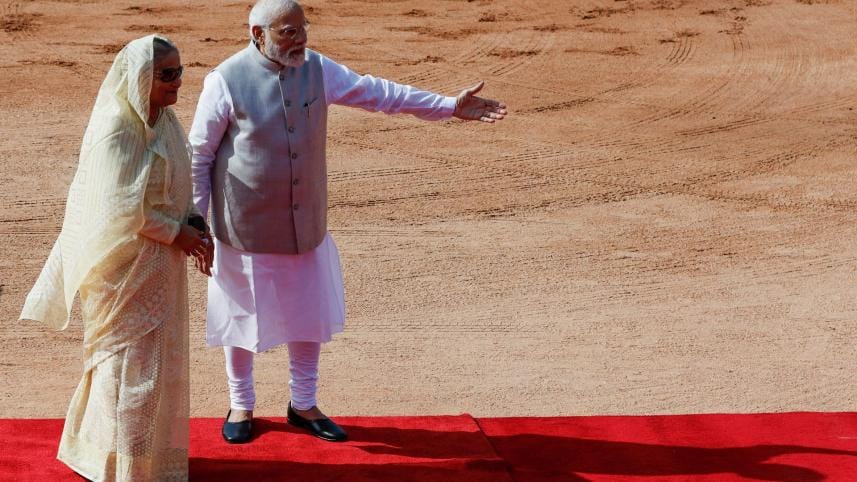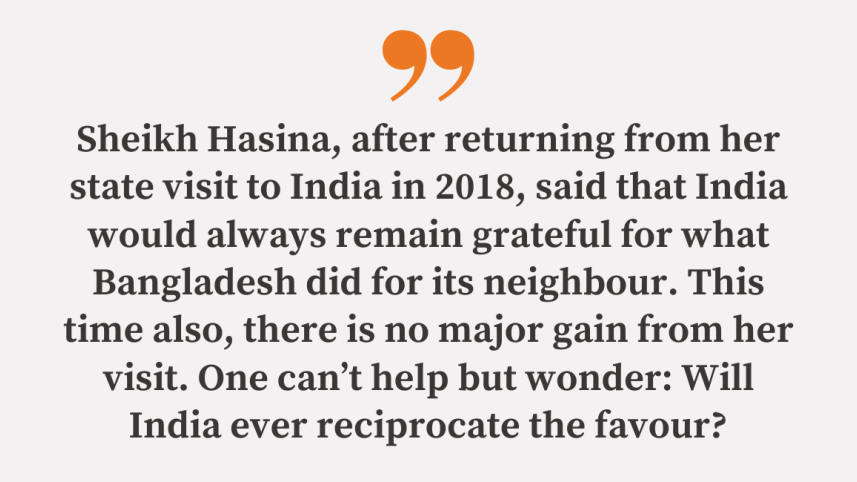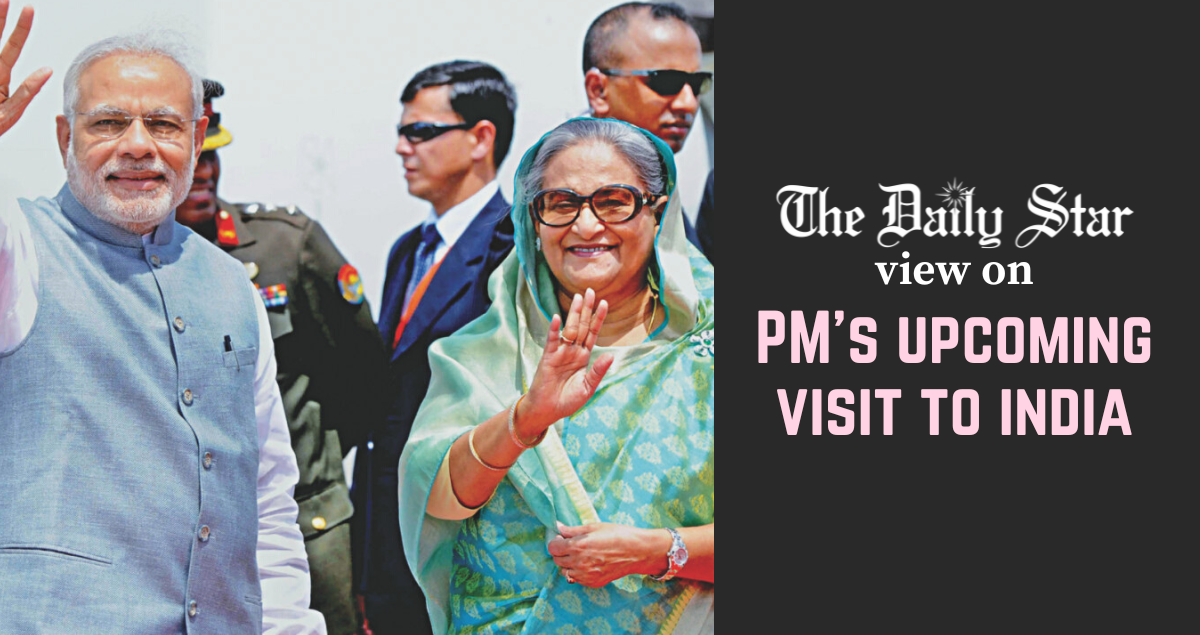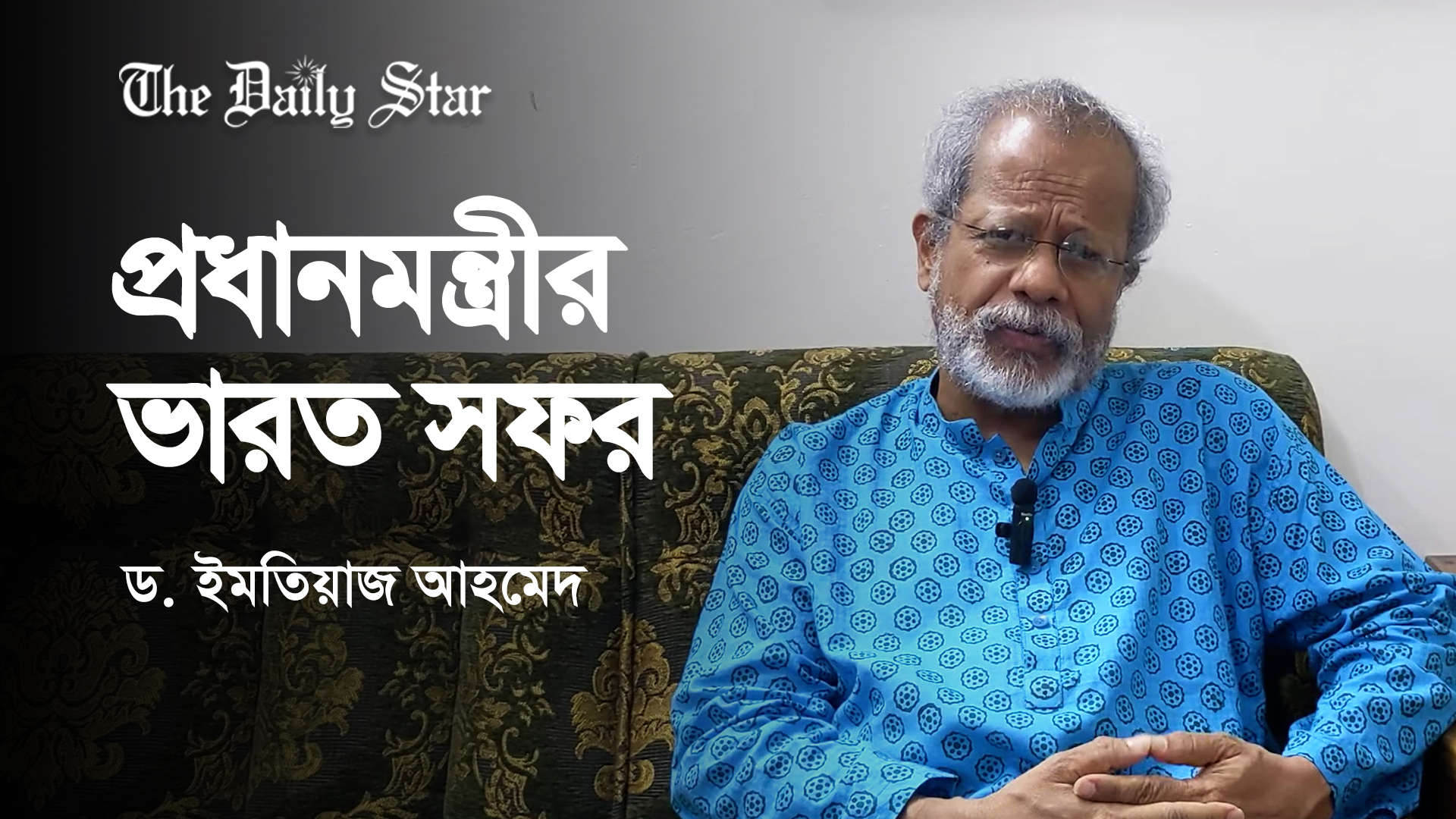PM Hasina’s India visit 2022: Will India ever reciprocate our favour?

The key part of Prime Minister Sheikh Hasina's visit to India, which ends today, is over with the conclusion of the meeting with her Indian counterpart Narendra Modi on September 6, 2022. The formalities of signing MoUs and the inauguration of projects are also complete. The fate of the visit is now set. So, what are the outcomes of this high-level diplomatic engagement? What are the gains for Bangladesh?
During the meeting, seven MoUs were exchanged and five projects were inaugurated.
Among the MoUs, the most important one is the withdrawal of 153 cusec (cubic feet per second) water from the Kushiyara River by Bangladesh under the upper Surma-Kushiyara project, via Rahimpur. The water will be used for irrigation of about 5,000 hectares of land. This is the first bilateral water-sharing arrangement between the two countries since the Ganges treaty in 1996. We must welcome this development. However, the major water-sharing disputes between the two countries remain unresolved.
Unfortunately, there has been no progress regarding the signing of the Teesta water-sharing agreement, the draft of which has been gathering dust since 2011. It is still at the assurance level, and not even mentioned in the statement issued by the Indian prime minister after meeting his Bangladeshi counterpart. Prime Minister Sheikh Hasina, in her statement, only expressed hope that the outstanding issues, including the Teesta treaty, would be concluded at an early date. The joint statement didn't mention India's current view on the matter either. Meanwhile, new dams are being planned on the Teesta River in the Indian state of Sikkim, which will further choke the river's water flow.
Similarly, although the delegations of the Joint River Commission (JRC) discussed preparing the drafts of the water-sharing frameworks for the Manu, Muhuri, Khowai, Gumti, Dharla and Dudhkumar rivers, they couldn't finalise them.
The Bangladesh government's poor water diplomacy has failed us again. They have failed to make India understand that Bangladesh can't wait forever to resolve the issues of sharing the water of the common rivers. It is worth mentioning that the JRC ministerial-level meeting was held on August 25, 2022 after about 12 years. Can we expect a better result?

Among the projects inaugurated, a major one is the unveiling of the Unit I of the Maitree power plant. The 1,320 (660x2) MW supercritical coal-fired thermal power plant in Rampal, Khulna is being set up at an estimated cost of approximately USD 2 billion, with USD 1.6 billion as Indian Development Assistance under Concessional Financing Scheme. There has been strong criticism and protest against this controversial project since its inception. Numerous studies have shown that the benefits of the Rampal coal-fired power plant are negligible compared to its negative irreversible impacts on the ecosystem of the Sundarbans, a natural shield against cyclones and storm surges for Bangladesh.
On the first day of Prime Minister Sheikh Hasina's visit, Indian business tycoon Gautam Adani called on her. He expressed confidence in the completion of the transmission line under the Adani Godda Power Plant project to Bangladesh by December this year. The power deal was signed during Modi's first visit to India in 2015. This project has also drawn a lot of flak from environmental activists and energy experts in both countries.
A report jointly published by the Bangladesh Working Group on External Debt (BWGED) and the India-based Growthwatch estimated that the capacity charge that Bangladesh is set to pay to the 1,600MW Adani Godda Power Plant over its 25-year lifetime is more than enough to build three Padma Bridges. The power from this plant, according to the study, will be 56.2 percent more expensive than the power imported from other sources.
It is reported that Adani has proposed to invest on a large scale in Bangladesh's energy and infrastructure sectors. Bangladesh must be aware of the Adani trap. We can learn from Sri Lanka's experience. In June 2022, Sri Lankan electricity chief MMC Ferdinando told a parliamentary committee that Prime Minister Narendra Modi had "pressured" Sri Lankan President Gotabaya Rajapaksa to clear an Adani Group project in the island nation. Massive protests were held in the country against the proposed wind mill project by Adani Group. However, Gotabaya Rajapaksa "vehemently denied" the statement; Ferdinando subsequently withdrew his statement and stepped down from his position.
Through this visit, the two countries have also made some progress on the upgradation of train tracks, signalling systems and railway stations, training of Bangladeshi judicial officers, and cooperation in space technology. Those will definitely contribute to strengthening the bilateral relationship between the two neighbours, but Bangladesh deserves better.
There was some hype about the Comprehensive Economic Partnership Agreement (CEPA), but it didn't get much importance in the statements of the prime ministers and the joint statement, except what Indian PM Modi said, "We will soon start discussions on the bilateral Comprehensive Economic Partnership Agreement." In his special media briefing, the India foreign secretary disclosed that talks between the two countries on CEPA were proposed to start this year and conclude before the graduation of Bangladesh from LDC status by 2026.
The Hasina-Modi talk failed to reach a meaningful point on two major security concerns of Bangladesh: repatriation of Rohingya refugees and border killings.
Bangladesh has raised the repatriation issue multiple times with New Delhi and urged India to use its good office with the Myanmar junta to take back the refugees currently sheltered in Bangladesh. However, India has been diligently maintaining its do-nothing policy towards the Rohingya. During this visit, Sheikh Hasina again emphasised that India can "do a lot" to help Bangladesh cope with the Rohingya crisis. But no concrete initiative to address the crisis is found in the joint statement – Indian Foreign Minister S Jaishankar gave our prime minister only assurances.
Although Bangladeshis are regularly killed on the border by India's Border Security Force (BSF), the joint statement expressed "satisfaction that the number of deaths due to incidents along the border has significantly reduced." Are border killings no longer a concern for Bangladesh?
When the BSF DG justified border killings during a meeting in Bangladesh on July 21, 2022, saying all Bangladeshis killed on the border were criminals, his Bangladeshi counterpart maintained silence. Is such silence bringing satisfaction?
The prime ministers of Bangladesh and India have met 12 times since 2015. Every time, particularly during the state visits, high expectations arose and, invariably, as they were not met, disillusionment settled in. Sheikh Hasina, after returning from her state visit to India in 2018, said that India would always remain grateful for what Bangladesh did for its neighbour. This time also, there is no major gain from her visit. One can't help but wonder: Will India ever reciprocate the favour?
Shamsuddoza Sajen is a journalist and researcher.




 For all latest news, follow The Daily Star's Google News channel.
For all latest news, follow The Daily Star's Google News channel. 


Comments